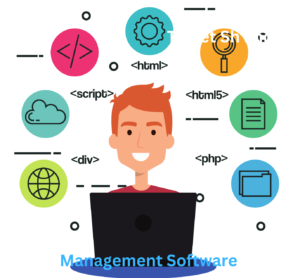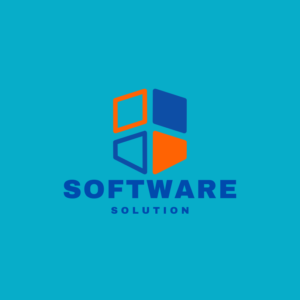Practice management software is a highly beneficial tool for professionals in almost every industry, including healthcare, legal, accounting, etc. It increases productivity, simplifies administrative tasks, and positively impacts overall efficiency. Yet, with many features and functionalities, it is essential to know what practice management software can or cannot do. One such question is: “Which of the following is NOT a function of practice management software?
This article will define the essential functions of practice management software, describe what it isn’t meant to do, and how it can benefit your practice. By the end of this guide, you’ll know precisely what practice management software can (and cannot) help you decide what’s best for your business.

But what exactly is Practice Management Software?
Practice management software is an industry-specific tool built to assist professionals in handling their practice’s daily functions. It simplifies administrative processes such as organizing client or patient data and streamlining workflows so practitioners can devote more time to providing quality services.
What Are the Key Features of Practice Management Software?
Appointment Scheduling: Manage appointments and prevent double bookings.
Billing and Invoicing : Creating invoices, processing payments, and tracking balances owed.
Client/patient records management : Storing and organizing electronic records securely
Task & Workflow Management : Delegating work, following up, and meeting deadlines.
Reporting and Analytics : Practice performance, financial, and other metrics reporting
Communication Tools: Makes it easier for staff to communicate with clients (or patients).
While these are all standard features of practice management software, it’s equally important to know what it is never going to do. This brings us to the test question: “Which of the following is not a function of practice management software?”
What is NOT a function of Practice Management Software?
To answer this, let’s first explore what practice management software is designed to do and what is outside its capabilities.
Key Features of Practice Management Software
Administrative Task Automation : Repetitive task automation such as appointment scheduling, billing, and record-keeping.
Bookkeeping : Monitoring revenue and costs and producing financial statements.
ClientPatient Interaction Managing communication and relationships with integrated tools
Compliance and SecurityEnsuring data security and regulatory compliance.
What Practice Management Software Does NOT Do
Practice management software streamlines administrative and operational tasks and is primarily used for this purpose. It is not designed for:
Clinical Decision-Making: Practice management software does not make medical diagnoses, provide treatment recommendations, or offer clinical advice. That is where healthcare professionals and specialized clinical software come into play.
SPagetrategy: The software does not offer legal advice or case strategy in sensitive cases. Their use also requires the input of attorneys.
Creativity or Design Work: Tools for graphic design, video editing, or other creative work are not included.
EDM It may generate elementary reports but is not a replacement for sophisticated data analytics or business intelligence tools.
For example, if you’re a healthcare provider, practice management software will schedule appointments and keep track of patient records. Still, it won’t diagnose a patient’s condition or recommend what treatment they should receive. Similarly, in a law firm, the software may track case deadlines and bill clients, but it won’t provide legal advice or draft legal documents.
Why it Matters to Know How This Works
It is essential to know which of the following is NOT a function of practice management software for many reasons:
Setting Realistic Expectations : Knowing the software better prevents frustration and allows you to select the right ones based on requirements.
Avoiding Excessive Dependence : Law practice software is an asset; it can never combine the human mind with specialized tools.
Getting the Most Out Of Your Software: Streamline your practice and concentrate on the features that work best for you.
How to Select the Best Practice Management Software
With many options available, choosing the best practice management software for your clinic can be difficult. Here are a few tips to help you decide:
Identify Your Needs
[Note: You are certified until October 2023.] For instance, do you require appointment scheduling, billing, or client communication solutions? You should know your training needs if you need to make it right for you.
Industry-specific Solutions
Industries have different requirements. Healthcare practices, for example, need HIPAA-compliant software, while legal practices may need case management tools. Search for software specific to your industry.
Evaluate Ease of Use
Data is limited to October 2023, A steep learning curve can limit adoption and lead to a decrease in productivity.
Verify Integration Functionality
Ensure it integrates with other software you use, such as accounting software, electronic health records (EHR) or customer relationship management (CRM) systems.
Prioritize Security
Data security is essential, especially in healthcare and legal fields. Here are the things you need to consider when choosing the right software: Make sure the software has stringent security controls and meets the required standards.
Read Reviews and Test Demos
You can read the user reviews and try the demos to understand the software’s functioning and usability.
How Practice Management Software Works in the Real World
While legal firms and similar businesses primarily use practice management software. Here are some examples:
Healthcare
In medical practices, the software assists in scheduling patient appointments, documenting medical records, and managing insurance claims. However, it does not support clinical decision-making.
Legal
Law firms employ practice management software to monitor case deadlines, manage client billing, and organize documents. However, the software does not give legal advice or draft legal documents.
Accounting
Accounting firms employ the software to organize client accounts, track spending, and produce financial documentation. It doesn’t advise on tax filings or replace accountants’ expertise.
Creative Agencies
Here are the most common areas where businesses use practice management software (or similar solutions) to organize their work: creative agencies. This may not include graphic design or video editing tools.
Praxis Management Software: A Look at Future Trends
As technology advances, practice management programs will only amplify their sophistication. Here are some trends to keep an eye on:
Integration Of Artificial Intelligence (AI)
AI-powered features like predictive analytics and automated task prioritization will enhance the software’s capabilities.
Enhanced Mobility
Anything that is more mobile-friendly will enable professionals to manage their practices on the go while being flexible and accessible.
Improved Data Security
Data breaches are a big concern, so software vendors will focus on improving security features to safeguard sensitive information.
Greater Customization
Software of the future will be more customizable, enabling users to modify the system to meet their requirements.
Conclusion
Practice management software features can revolutionize how you manage your practice. Talent management provides everything you need to maintain flow so you can deliver the right services to your clients or patients.
However, it’s essential to know its limitations. As we’ve discussed here, the answer to “Which of the following is not a function of practice management software? One thing is clear: it is not for clinical decision-making, legal case strategy, creative work or advanced data analysis. These tasks need special tools and human expertise.
Implementing and utilizing the right practice management software from the beginning can ensure smooth operations while enhancing efficiency and driving growth in the long run. Whether you operate in healthcare, legal, accounting, or any other sector, investing in the right software can be a real game-changer.
